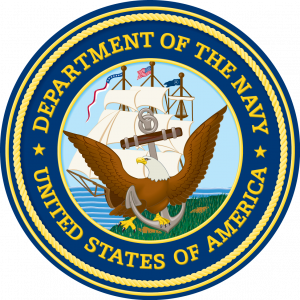 CDR BERNARD V. SHINAL, USN SIGNAL CHARLIE
CDR BERNARD V. SHINAL, USN SIGNAL CHARLIE 
CDR Bernard V. Shinal, USN passed away in 2013. He received his wings at HT-18 NAS Whiting Field South, Milton, Fl on September 28, 1984 and was Navy Helicopter Designator Number 17795.
John Shinal, USA Today columnist and younger brother of CDR Shinal November 27, 2015
“Be thankful to share both joy and sorrow. Grief comes and goes as it needs to, without asking permission. A human instinct more powerful than any intellect, its sadness can come out of nowhere, driving us to act before we even know it’s arrived. One of my older brothers died six years ago this week. Gone at age 52 from stomach cancer. Though the grief spares me most of the time, it hits hardest every year on the exact date of his death. It’s a time of endings in the Northern Hemisphere: The crops are cut down for food, the trees are cut down for fuel, the winter sky darkens, its colors become more muted.Late November can be a mournful time of year. Monday morning, I lit a candle in my home altar for the first time, something I’ve been considering for months but hadn’t done. Even as I did, I didn’t say to myself, I’ll light a candle for Bernie. My older brother was tending bar for a German Catholic social club in our hometown in the early 1980s when he announced he was going to join the U.S. Navy and “learn to fly.” I nodded and said, “Cool,” too distracted by my own teenage life to realize how seminal his decision would be for us. Our daily relationship ended the day he put a placard that read “Fly Navy” in the driver’s side window of his Datsun 280ZX and drove out of our driveway in Wilkes-Barre, Pa., headed for Pensacola, Fla. He arrived at Aviation Officer Candidate School the same year that actors Richard Gere and Debra Winger made it famous in An Officer and a Gentleman. For the next 23 years, I rarely saw him. In exchange for a sworn oath to protect our country and its people, he got a job cruising and flying around the Pacific Rim for two decades. In early 1992, he upheld his oath and went to war, flying teams of Navy SEALS around the waterways of Kuwait and Iraq that Saddam Hussein’s forces had mined. Fly in commandos between all those oil well fires — that toxic smoke mixing with the stinging desert sand — hope nobody is left around to shoot at you, then pick up the Navy demolition teams a few hours later. That’s just a tiny snapshot of my brother’s career, one he loved with commitment. Like many vets, he never talked much about his service, never bragged about it. But I know the men he commanded — the mechanics and NCOs that were his flight crews in places such as NAS Barbers Point and NAS North Island — loved that he himself was a mechanic at heart. CDR Bernard V. Shinal, who also spent time as an instructor pilot, could not only fly any “helo” in the Navy but also take apart and rebuild any car engine. He had revived his Datsun with six months of hard work in our driveway after the previous owner had plunged it into a lake. In 1986, he asked me to stay with his new family in sunny San Diego while he went on a six-month WestPAC cruise. The summer-long stint gave me the chance to form a lifelong relationship with his wife, now widow, and their eldest son. Monday, my sister-in-law sent me a picture of my brother’s grave at Arlington National Cemetery, as she has every year on the anniversary of his death. That was after I lit the candle but before I realized why my other, surviving brother had called the night before. My eldest brother was wondering why this Thanksgiving week was harder than last year’s, even though it was the second, not the first, since he lost his wife to scleroderma at age 64. Even after we learn that grief comes in waves, it can still sneak up on us. My brother said this week that he remembered being in a sixth-grade classroom Nov. 22, 1963, when the religious nun teaching his class told the students to go home unexpectedly in the early afternoon. When he got home, my eldest brother saw our late mother crying after learning from Walter Cronkite that U.S. President John F. Kennedy had been assassinated in Dallas. Late November can be a mournful time of year. I remember the beginning of Thanksgiving week six years ago, pushing the button on the morphine regulator as I sat at my brother’s hospice bedside after I saw the pain make him grimace. My brother and I, who’d shared a bedroom for about six years as kids, mostly sat without talking for the better part of two days as I helped his wife and three kids keep a silent, solemn vigil at his bedside. “Don’t be afraid to use that button when you see he needs some,” the nurses and orderlies had told me. I remember one of the staffers stroking his still-thick hair, pretending to flirt with him, getting a smile out of him. When I closed the door of his hospice room for the last time — about six hours before his wife called to say he had stopped breathing — I watched his family gather silently around his bed. We lost him too early, but he lived a large life, and at least he’s going peacefully, I thought. It was my mantra in those silent hours and remains so whenever I think of him. In a text after she sent the photo from his grave, after I thanked her for sending it and asked how she was, my sister-in-law said, “It still hurts like it happened yesterday.” I remember the funeral at Arlington as I remember my brother’s earlier memorial service, when we had to support my father who collapsed as he wailed for the loss of his son. It was sad and draining and terrible but not without warmth. Several men, total strangers to my family, saluted the funeral procession as it crawled along the cemetery’s narrow roads. It’s not just our grief, I thought then. A detachment of the Navy Marching Band played ahead of the caisson that took my brother’s body from the Old Post Chapel to his final resting place. Monday, after receiving his widow’s texts with a photo of that place, I realized why the grief still sneaks up on me — and all of us who’ve lost someone dear. It’s not our sadness alone that we feel. Human beings have the wonderful yet terrible ability to share emotional states of mind — from ecstasy to debilitating grief and everything in between. This week, as the sun retreats and the cold air creeps southward, we gather around tables in larger numbers than usual and seek warmth and light in each other. If you want to feel more connected this holiday season, try sharing some sadness as well as joy. If you’re looking for some, you can find it among our nation’s military families, on whom we have placed a tremendous burden. Better medical training and equipment used in Iraq and Afghanistan have allowed many more sailors, soldiers, airmen, pilots and Marines to return to their families than in our past wars. But technology cannot erase the scars of war, which have led to a spike in military suicides over the past decade among brave men and women overcome by what war did to them, showed them. Scarred veterans across this land, as well as their families, have suffered and continue to suffer for their service to our country. Any one of us, given a few hours, can help ease that suffering and sacrifice. Sometime this week, after the feasting and maybe between Black Friday and Cyber Monday, consider volunteering to go visit a veteran’s hospital or counseling center. If you’re not so inclined, try visiting a children’s hospital or a hospice in your area instead or sending one a gift or a check. This columnist can report with confidence that angels work at some of those places, disguised as humans, ones who can put a smile on the face of a dying man.”
John Shinal is a columnist for USA TODAY’s Money section.
